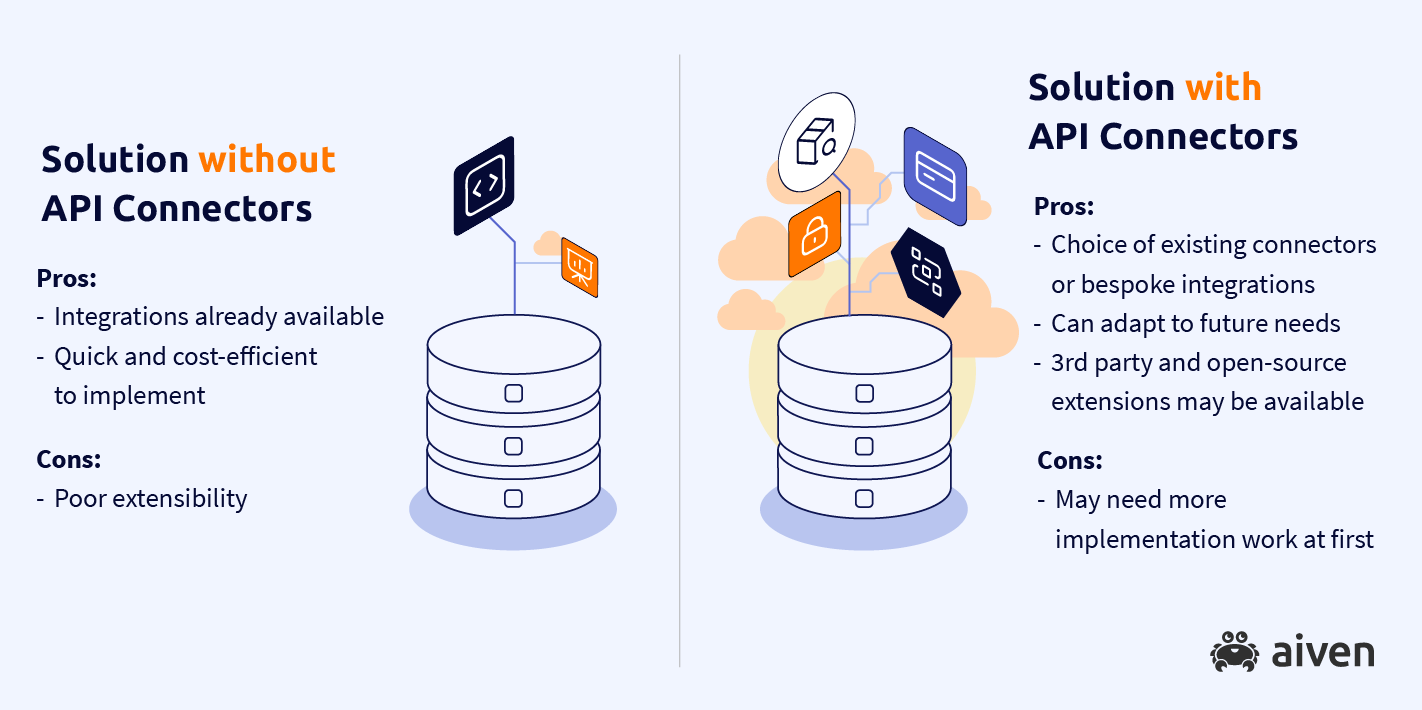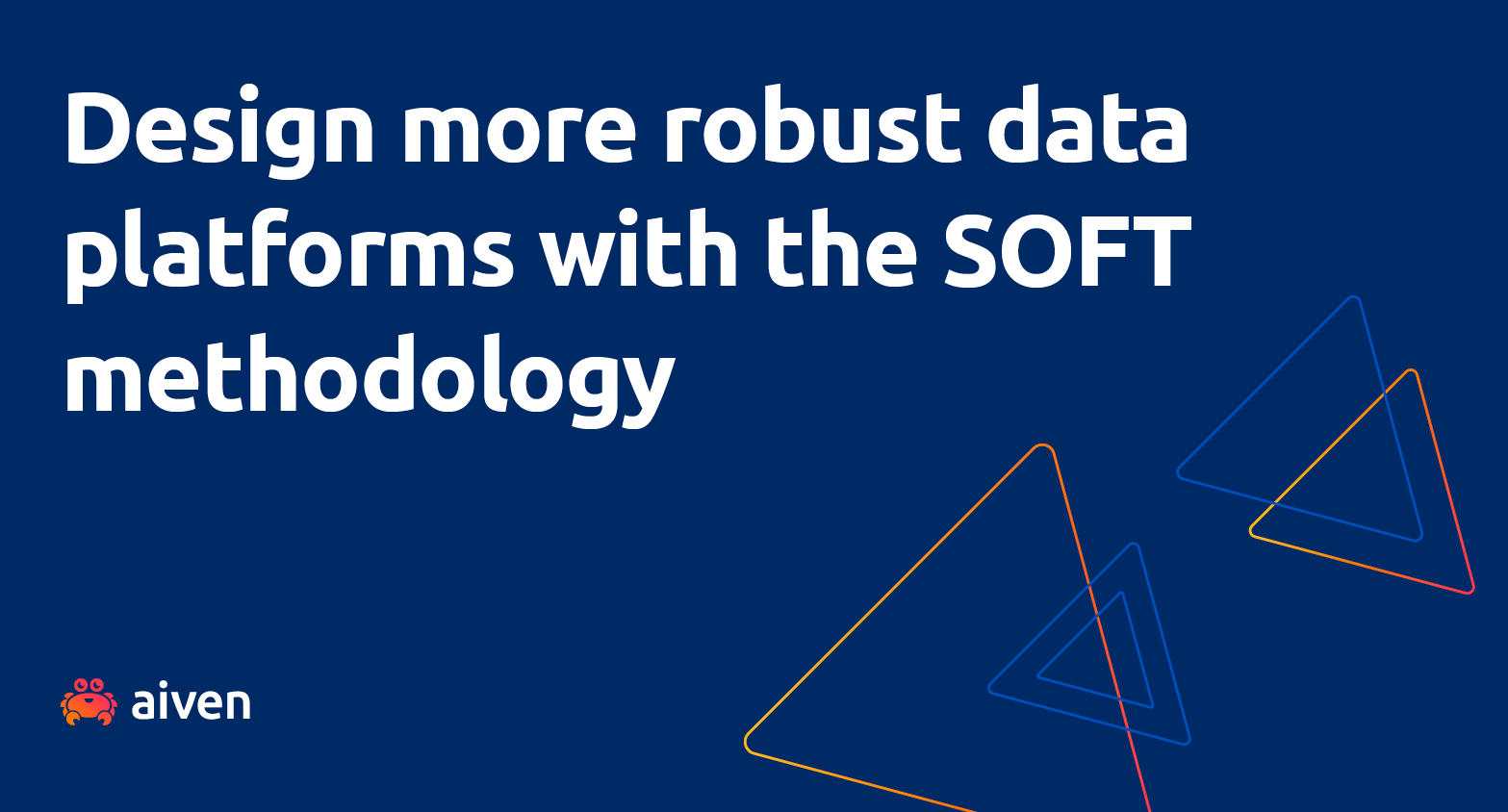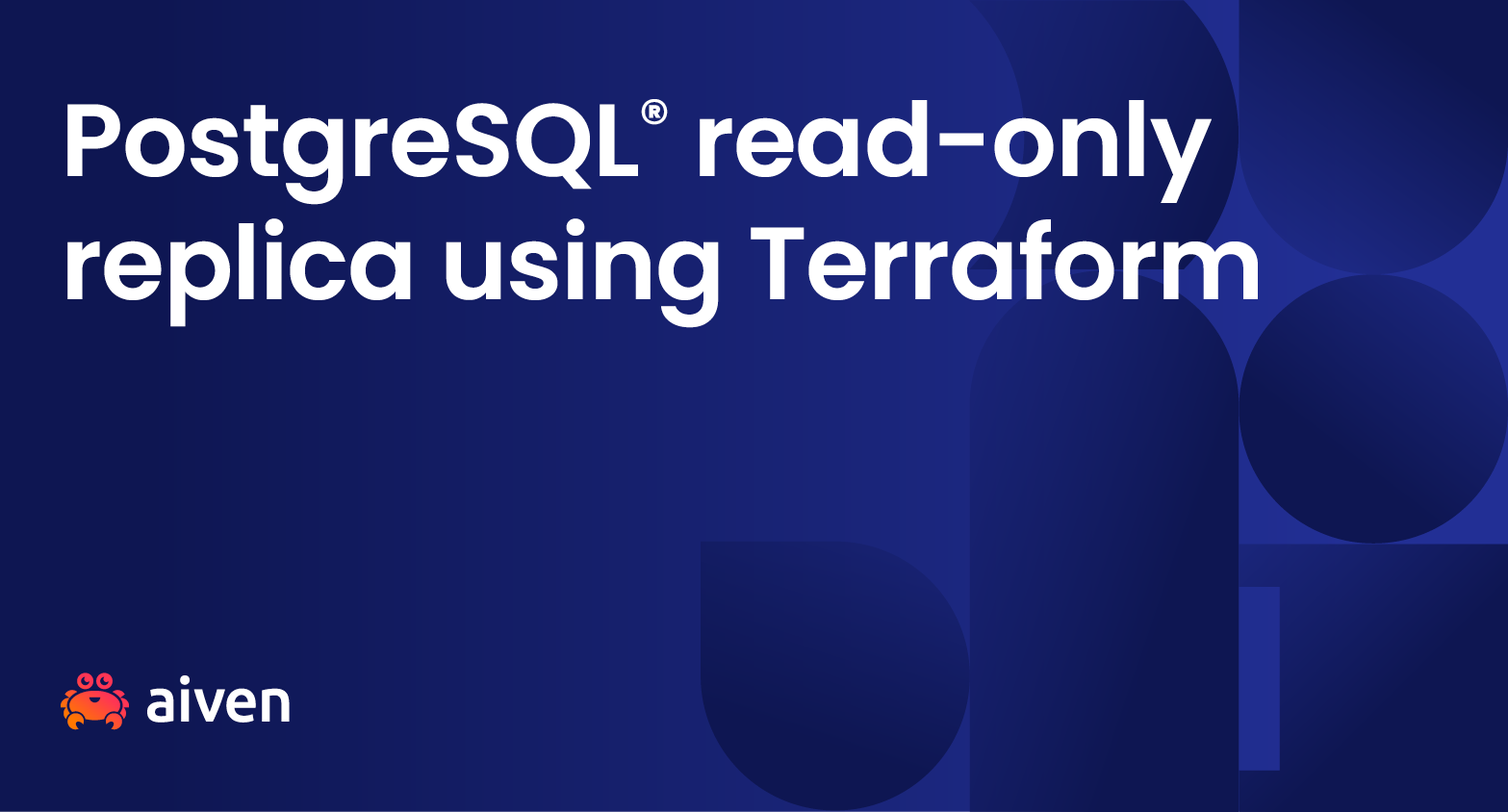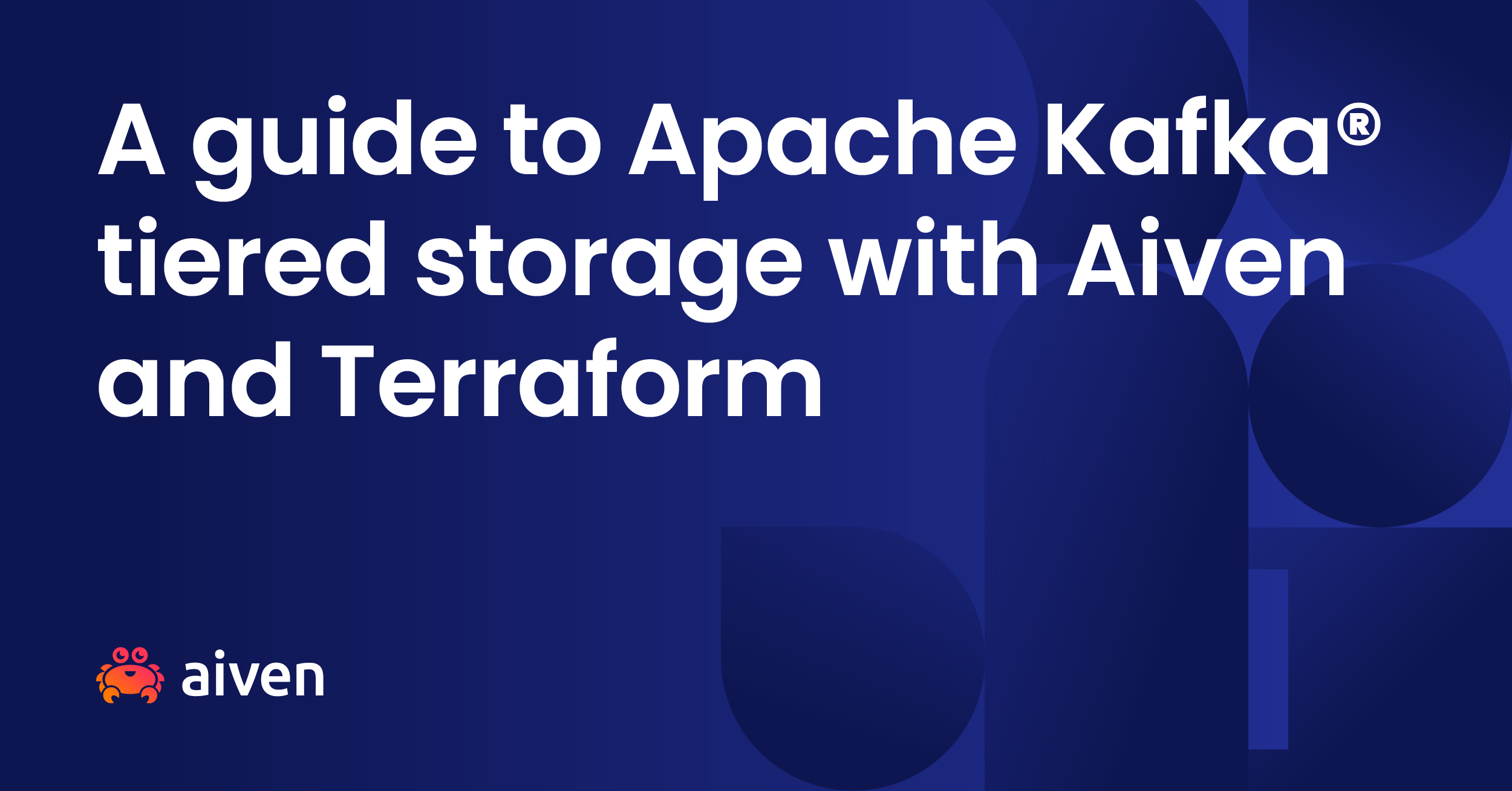Nov 11, 2022
Your cloud platform isn't future-proof without an API
An API is an important feature to look for when it comes to making cloud purchasing decisions. Here's why.
Lorna Mitchell
|RSS FeedDeveloper Advocate at Aiven
Truly cloud-native applications compose their platforms from the best components available, ensuring that the needs of the application or platform are met. Typically this includes a compute platform, some data components to move, store and analyze data, some monitoring or observability solutions, and probably additional supporting systems such as identity management.
When making the decisions about how to compose the best solution from the available services, it's important to consider not only the current needs, but also the future growth and evolution of the project. At the most basic level, making sure that there are existing integrations available between the components to be used. For companies that anticipate that their needs will change, it may also be possible to anticipate future requirements and include them for consideration.
The problem arises when a solution is implemented, and a new component is added to the system during its lifetime with no integration route. As always, the unknown unknowns are the worst, and often the most expensive to deal with. If you remember the time when every new phone you bought came with a new custom charger that didn't fit any other devices, you have a good idea of how far-reaching the decision to replace one piece of the puzzle can be. Your new phone now requires you to buy a new car charger, travel charger, headset...
So what can we do to future-proof our cloud platform decisions, and avoid the problem of new components being incompatible with our existing ecosystem?
Choose APIs
The first choice for any connection between two systems is an existing integration or component that is tested and ready for use. Usually this means a minimum amount of time and effort on implementation, and things should Just Work™. Sometimes, those integrations aren't already available between every combination of platforms, or your application may have specific needs that require a bespoke integration.
Successful cloud transformation projects consider the future-proofability of their chosen services as well as the current requirements. An extensive (and publicly available) list of integrations is usually a good sign of a cloud service that will play nicely with others. With luck, everything you need for now and the rest of the lifetime of your project will be covered by those integrations - or the service will evolve as your needs do.
This opens the door to third-party extensions, and also gives you the freedom to build integrations that complete your perfect cloud platform. We see customers using our APIs to automatically provision platforms for development or testing, to power down nonessential systems at weekends to save on cloud bills, and to integrate with their custom CI (continuous integration) and build tooling.
Choosing cloud services with APIs is like buying devices with standard ports and connectors. You can buy a charger from any manufacturer, and you can replace the phone, the headset, the car charger, or any other component without needing to replace them all. Similarly, if there's something new to add to your ecosystem in the future, while your provider may well produce a connector in a timely manner, having the APIs available means you can always integrate things yourself if you need to.
What happens next?
So, your phone setup is all done, and the next time you need to buy a new charger, or headset, you can do so in confidence the whole thing is still going to work. It's time to make this metaphor a reality, and make a call.
Try these resources next:
- Learn more about Aiven's API
- View the full API documentation
- Try the Aiven API in Postman
The Aiven Platform: for all the integrations you need
Need monitoring? Orchestration? Data integration? Easily integrate Aiven services with your existing infra.
Explore all connectors & integrationsTo get the latest news about Aiven and our services, plus a bit of extra around all things open source, subscribe to our monthly newsletter!
If you just want to find out about our service updates, follow our changelog.
Are you still looking for a managed data platform? Head to the Aiven Console to sign up for a free trial!
Table of contents
Stay updated with Aiven
Subscribe for the latest news and insights on open source, Aiven offerings, and more.




